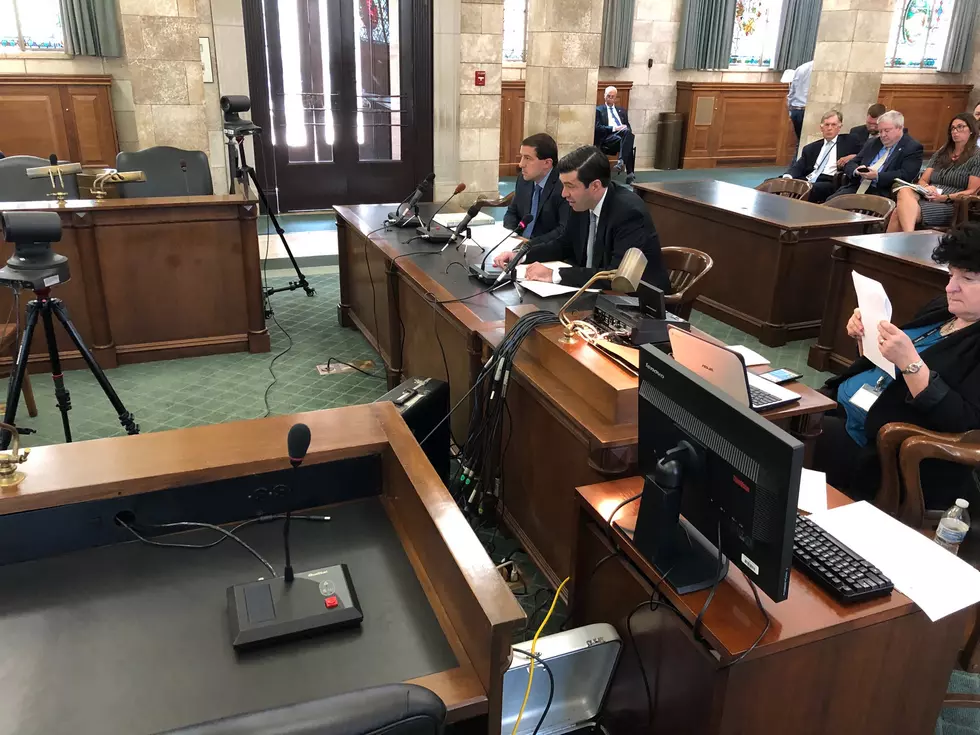
NJ giving corporations ‘job creation’ tax breaks on the honor system
Four years ago, Gov. Phil Murphy directed the Office of the State Comptroller to review how the New Jersey Economic Development Authority was handing out billions of dollars in tax incentives to corporations.
A new report finds progress is being made in holding corporations responsible for promises they make to create jobs but there is still a lack of oversight and transparency with regard to how businesses were granted eligibility for tax incentives.
Acting State Comptroller Kevin Walsh said the EDA has adopted some recommended policies and procedures put forth by his office to monitor whether tax incentives are benefiting the state the way they are supposed to, but more must be done to determine if businesses are doing what they promise to do in the long term.
Use actual data
“It’s an issue that involves using actual data to ensure that jobs that a business promised to provide are actually in existence,” he said.
He said tax incentives, to a large degree, are about creating new jobs, and the report finds the EDA is not using data to make sure taxpayer interests are being protected, but “the Economic Development Authority has agreed to make changes in that area so that actual data will be used whenever there is going to be an award of tax credits going forward.”
More follow-up is needed
He explained tax incentives play out over 10 years, and while new jobs may be created in year 1 “what we’re most focused on is years 2,3, 4 all the way up to 10, to make sure the jobs that were promised exist throughout the life of the award.”
He said the one main area where the EDA is not following recommended changes “involves transparency and information that is shared with the public, with lawmakers, with New Jersey overall.”
What's working, what's not
The report finds the EDA has not adopted OSC’s recommendations to:
— Develop a process for incentive programs to report on their successes and determine if economic benefits were actually realized.
— Require annual reports for incentive program activities that are based on actual performance.
It finds the EDA has partially adopted OSC’s recommendations to:
— Require businesses to show documentation for a net increase in employment.
— Develop a process for businesses that receive multiple awards to ensure that jobs are not duplicated and businesses aren’t collecting awards multiple times.
— Use “actual” performance data to determine a business’s eligibility for tax incentives awards, a project’s economic benefit to the state, and whether there are grounds to terminate or suspend awards.
It also finds the EDA has adopted policies and procedures to address OSC’s recommendations to:
— Develop monitoring and oversight activities that thoroughly analyze whether jobs were actually created or retained.
— Create a policy to establish a business’s baseline employment numbers when they apply so they are only awarded for newly created or retained jobs.
— Create a policy to establish job-reporting requirements and collect documentation to make sure jobs were actually created or retained.
— Establish monitoring processes to assess a business’s performance that compares self-reported data with independent data from the Department of Labor.
— Develop uniform templates for reporting that ensure businesses are satisfying all of the required job factors.
After the report was issued the EDA put out a news release announcing that it has cut tax incentive awards that had been approved by $350 million.
The release indicated “through increased oversight and more stringent review processes, the NJEDA has reduced the amounts of Grow NJ awards for 82 companies to date after they did not create or retain the number of jobs they committed to at the time of project approval.
You can contact reporter David Matthau at David.Matthau@townsquaremedia.com.
Update: NJ arrests in Jan. 6 U.S. Capitol riot
LOOK: Food history from the year you were born
More From Beach Radio










